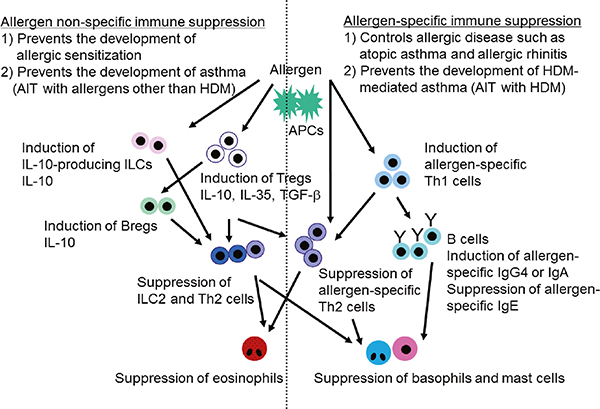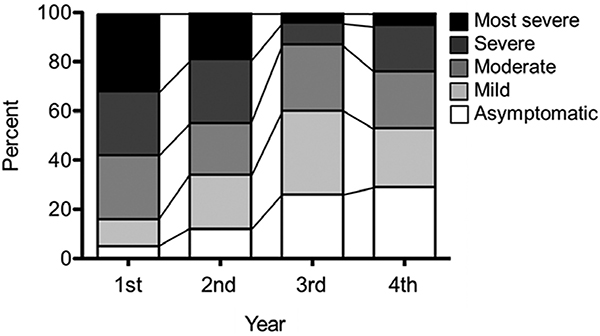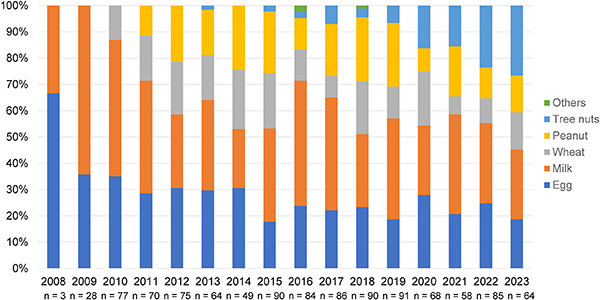Volume 73, Issue 4 (October 2024)
Review Series: Recent progress in allergen immunotherapy
Drs. Nakagome and Nagata highlight immunotherapy's role in managing allergic asthma. They discuss the benefits of immunotherapy in improving asthma control, reducing airway hyperresponsiveness, and decreasing medication doses, as well as its significance in treating a broad range of allergic diseases. In particular, they emphasize the potential of immunotherapy to modify the natural course of asthma and other allergic conditions. The authors also explore potential mechanisms underlying immunotherapy, including allergen-nonspecific pathways involving IL-10-producing regulatory T cells, B cells, and innate lymphocytes, as well as allergen-specific IgG4 expression. Notably, this suggests that allergen-specific immunotherapy may have the capacity to broadly suppress allergic reactions, regardless of the specific allergen involved.
Dr. Gotoh and colleagues provide an in-depth account of the history and development of SLIT for treating allergic rhinitis, particularly Japanese cedar pollinosis. SLIT has evolved from a controversial and underutilized approach to a widely accepted alternative to SCIT, with fewer side effects. The authors also provide insights into the mechanisms of SLIT, based on their research into CD4+ T cell gene expression profiles. In the treatment of cedar pollinosis, a condition now affecting approximately 40% of the Japanese population, SLIT has become a valuable option due to its convenience, safety, and efficacy in reducing symptoms and medication use.
Dr. Sato and colleagues explore this emerging field, focusing on the immunotherapy of food allergens such as egg, milk, wheat, and peanut, with particular emphasis on data from Japan. They discuss various approaches, including oral immunotherapy (OIT), percutaneous immunotherapy (EPIT), and SLIT, underscoring the importance of ongoing research to optimize protocols, enhance safety, and expand the range of treatable allergens.





